Victor Hugo
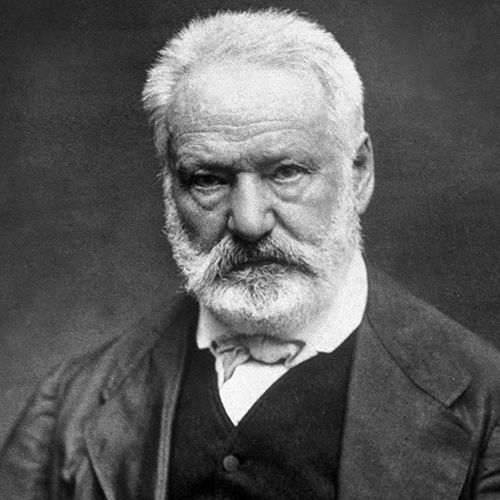
(1802-1885)

Who Was Victor Hugo?
Victor Hugo was a French poet and novelist who, after training as a lawyer, embarked on the literary career. He became one of the most important French Romantic poets, novelists and dramatists of his time, having assembled a massive body of work while living in Paris, Brussels and the Channel Islands. Hugo died on May 22, 1885, in Paris.
Victor-Marie Hugo was born in Besançon, France, on February 26, 1802, to mother Sophie Trébuche and father Joseph-Léopold-Sigisbert Hugo. His father was a military officer who later served as a general under Napoleon.
'The Hunchback of Notre Dame'
Hugo studied law between 1815 and 1818, though he never committed himself to legal practice. Encouraged by his mother, Hugo embarked on a career in literature. He founded the Conservateur Litteraire , a journal in which he published his own poetry and the work of his friends. His mother died in 1821. The same year, Hugo married Adèle Foucher and published his first book of poetry, Odes et poésies diverses . His first novel was published in 1823, followed by a number of plays.
Hugo's innovative brand of Romanticism developed over the first decade of his career.
In 1831, he published one of his most enduring works, Notre-Dame de Paris ( The Hunchback of Notre Dame ). Set in the medieval period, the novel presents a harsh criticism of the society that degrades and shuns the hunchback, Quasimodo. This was Hugo's most celebrated work to date and paved the way for his subsequent political writing.
'Les Misérables'
A prolific writer, Hugo was established as one of the most celebrated literary figures in France by the 1840s. In 1841, he was elected to the French Academy and nominated for the Chamber of Peers. He stepped back from publishing his work following the accidental drowning of his daughter and her husband in 1843. In private, he began work on a piece of writing that would become Les Misérables.
Hugo fled to Brussels following a coup in 1851. He lived in Brussels and in Britain until his return to France in 1870. Much of the work that Hugo published during this period conveys biting sarcasm and fierce social criticism. Among these works is the novel Les Misérables , which was finally published in 1862. The book was an immediate success in Europe and the United States. Later reinterpreted as a theatrical musical and a film, Les Misérables remains one of the best-known works of 19th-century literature.
Death and Legacy
Though Hugo returned to France after 1870 as a symbol of republican triumph, his later years were largely sad. He lost two sons between 1871 and 1873. His later works are somewhat darker than his earlier writing, focusing on themes of God, Satan and death.
In 1878, he was stricken with cerebral congestion. Hugo and his mistress, Juliette, continued to live in Paris for the rest of their lives. The street on which he lived was renamed Avenue Victor Hugo on the occasion of his 80th birthday in 1882. Juliette died the following year and Hugo died in Paris on May 22, 1885. He received a hero's funeral. His body lay in state beneath the Arc de Triomphe before burial in the Panthéon.
Hugo remains one of the giants of French literature. Although French audiences celebrate him primarily as a poet, he is better known as a novelist in English-speaking countries.
QUICK FACTS
- Name: Victor
- Birth Year: 1802
- Birth date: February 26, 1802
- Birth City: Besançon
- Birth Country: France
- Gender: Male
- Best Known For: Victor Hugo is a celebrated French Romantic author best known for his poetry and his novels, including 'The Hunchback of Notre Dame' and 'Les Misérables.'
- Fiction and Poetry
- Theater and Dance
- Astrological Sign: Pisces
- Nacionalities
- Death Year: 1885
- Death date: May 22, 1885
- Death City: Paris
- Death Country: France
CITATION INFORMATION
- Article Title: Victor Hugo Biography
- Author: Biography.com Editors
- Website Name: The Biography.com website
- Url: https://www.biography.com/authors-writers/victor-hugo
- Access Date:
- Publisher: A&E; Television Networks
- Last Updated: April 1, 2021
- Original Published Date: April 2, 2014
- When a woman is talking to you, listen to what she says with her eyes.
- An intelligent hell would be better than a stupid paradise.
Watch Next .css-16toot1:after{background-color:#262626;color:#fff;margin-left:1.8rem;margin-top:1.25rem;width:1.5rem;height:0.063rem;content:'';display:-webkit-box;display:-webkit-flex;display:-ms-flexbox;display:flex;}

William Shakespeare
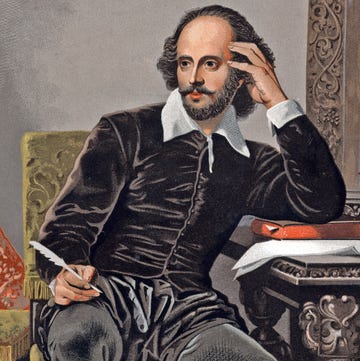
How Did Shakespeare Die?
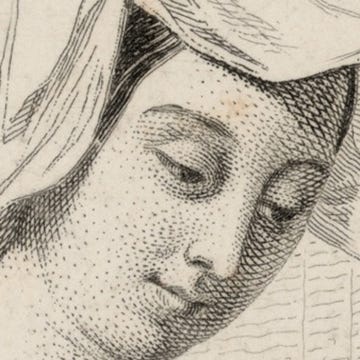
Christine de Pisan
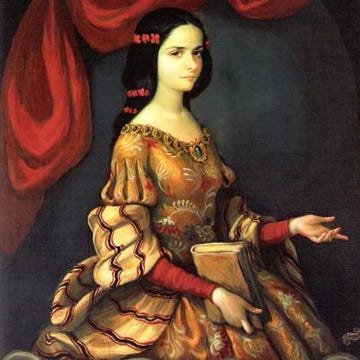
Sor Juana Inés de la Cruz
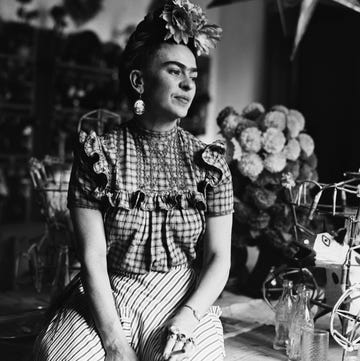
14 Hispanic Women Who Have Made History
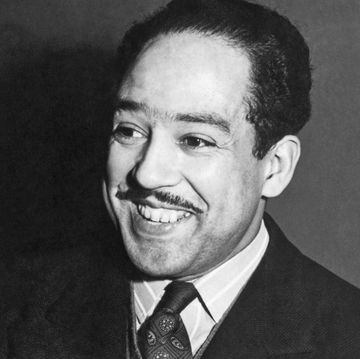
10 Famous Langston Hughes Poems

5 Crowning Achievements of Maya Angelou

Amanda Gorman
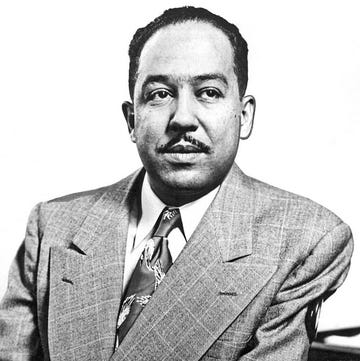
Langston Hughes
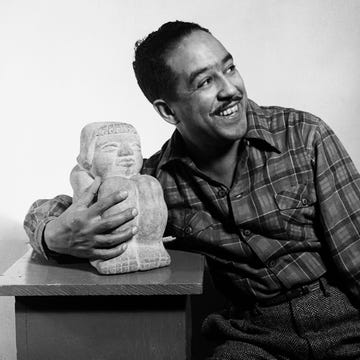
7 Facts About Literary Icon Langston Hughes

Maya Angelou
Biography of Victor Hugo, French Writer
Poet, novelist, and voice of the French Romantic Movement
London Stereoscopic Company / Hulton Archive / Getty Images
- Authors & Texts
- Top Picks Lists
- Study Guides
- Best Sellers
- Plays & Drama
- Shakespeare
- Short Stories
- Children's Books
:max_bytes(150000):strip_icc():format(webp)/ThoughtCo_Amanda_Prahl_webOG-48e27b9254914b25a6c16c65da71a460.jpg)
- M.F.A, Dramatic Writing, Arizona State University
- B.A., English Literature, Arizona State University
- B.A., Political Science, Arizona State University
Victor Hugo (February 26, 1802 – May 22, 1885) was a French poet and novelist during the Romantic Movement. Among French readers, Hugo is best known as a poet, but to readers outside of France, he’s best known for his epic novels The Hunchback of Notre Dame and Les Misérables .
Fast Facts: Victor Hugo
- Full Name: Victor Marie Hugo
- Known For: French poet and author
- Born: February 26, 1802 in Besançon, Doubs, France
- Parents: Joseph Léopold Sigisbert Hugo and Sophie Trébuchet
- Died: May 22, 1885 in Paris, France
- Spouse: Adèle Foucher (m. 1822-1868)
- Children: Léopold Hugo (1823), Léopoldine Hugo (1824-1843), Charles Hugo (b. 1826), François-Victor Hugo (1828-1873), Adèle Hugo (1830-1915)
- Selected Works: Odes et Ballades (1826), Cromwell (1827), Notre-Dame de Paris (1831), Les Misérables (1862), Quatre-vingt-treize (1874)
- Notable Quote: “The greatest happiness of life is the conviction that we are loved—loved for ourselves, or rather, loved in spite of ourselves.”
Born in Besançon in Franche-Comté, a region in eastern France, Hugo was the third son born to Joseph Léopold Sigisbert Hugo and Sophie Trébuchet Hugo. He had two older brothers: Abel Joseph Hugo (born 1798) and Eugène Hugo (born 1800). Hugo’s father was a general in the French army and a fervent supporter of Napoleon . As a result of his military career, the family moved frequently, including stints in Naples and Rome. For the most part, though, he spent his early years in Paris with his mother.
Hugo’s childhood was a time of immense political and military turmoil in France. In 1804, when Hugo was 2 years old, Napoleon was proclaimed emperor of France ; a little over a decade later, the monarchy of the House of Bourbon was restored . These tensions were represented in Hugo’s own family: his father was a general with republican beliefs and a supporter of Napoleon, while his mother was Catholic and fervently royalist; her lover (and Hugo’s godfather) General Victor Lahorie was executed for conspiracies against Napoleon. Hugo’s mother was primarily responsible for his upbringing, and as a result, his early education was both intensely religious and strongly biased towards pro-monarchy sentiments.
As a young man, Hugo fell in love with Adèle Foucher, his childhood friend. They were well-matched in personality and in age (Foucher was only one year younger than Hugo), but his mother strongly disapproved of their relationship. Because of this, Hugo would not marry anyone else, but would not marry Foucher while his mother was still alive, either. Sophie Hugo died in 1821, and the couple were able to marry the following year, when Hugo was 21. They had their first child, Leopold, in 1823, but he died in infancy. Eventually, they were the parents of four children: two daughters (Leopoldine and Adele) and two sons (Charles and François-Victor).
Early Poetry and Plays (1822-1830)
- Odes et poésies diverses (1822)
- Odes (1823)
- Han d'Islande (1823)
- Nouvelles Odes (1824)
- Bug-Jargal (1826)
- Odes et Ballades (1826)
- Cromwell (1827)
- Le Dernier jour d'un condamné (1829)
- Hernani (1830)
Hugo began writing as a very young man, with his first publication coming in 1822, the same year as his marriage. His first collection of poetry, titled Odes et poésies diverses was published when he was only 20 years old. The poems were so admired for their elegant language and passion that they came to the attention of the king, Louis XVIII , and earned Hugo a royal pension. He also published his first novel, Han d'Islande , in 1823.
In these early days—and, indeed, through much of his writing career—Hugo was heavily influenced by one of his predecessors, French writer François-René de Chateaubriand, who was one of the preeminent literary figures in the Romantic Movement and one of France's most visible writers during the early 19th century. As a young man, Hugo vowed to be "Chateaubriand or nothing," and in many ways, he got his wish. Like his hero, Hugo became both an icon of Romanticism and an involved party in politics, which eventually led to his exile from his homeland.
Although the youthful, spontaneous nature of his early poems put him on the map, Hugo’s later work soon evolved to show off his remarkable skill and craftsmanship. In 1826, he published his second volume of poetry, this one titled Odes et Ballades . This work, in contrast to his more precocious first work, was more technically skillful and contained several well-received ballads and more.
Hugo’s early writings were not solely confined to poetry, though. He became a leader in the Romantic Movement with several plays during this time as well. His plays Cromwell (1827) and Hernani (1830) were at the epicenter of literary debates about the Romantic Movement’s tenets versus the rules of neoclassical writing. Hernani , in particular, sparked intense debate between traditionalists and Romantics; it came to be considered the vanguard of French Romantic drama. Hugo’s first work of prose fiction was also published during this time. Le Dernier jour d'un condamné ( The Last Day of a Condemned Man ) was published in 1829. Telling the story of a man condemned to death, the short novel was the first appearance of the strong social conscience that Hugo’s later works would be known for.
First Novel and Further Writing (1831-1850)
- Notre-Dame de Paris (1831)
- Le roi s'amuse (1832)
- Lucrezia Borgia (1833)
- Marie Tudor (1833)
- Ruy Blas (1838)
- Les Rayons et les Ombres (1840)
- Le Rhin (1842)
- Les Burgraves (1843)
In 1831, Notre-Dame de Paris , known in English as The Hunchback of Notre Dame , was published; it was Hugo’s first full-length novel. It became a huge hit and was quickly translated into other languages for readers across Europe. The novel’s biggest legacy, though, was much more than literary. Its popularity led to a surge of interest in the real Notre Dame cathedral in Paris, which had fallen into disrepair as a result of ongoing neglect.
Because of the stream of tourists who loved the novel and wanted to visit the real cathedral , the city of Paris began a major renovation project in 1844. The renovations and restorations lasted for 20 years and included the replacement of the famous spire; the spire built during this period stood for nearly 200 years, until it was destroyed in the 2019 Notre Dame fire. On a broader scale, the novel led to a renewed interest in pre-Renaissance buildings, which began to be cared for and restored more than they had in the past.
Hugo’s life during this period was also subject to some immense personal tragedy, which influenced his writing for some time. In 1843, his oldest (and favorite) daughter, Leopoldine, drowned in a boating accident when she was a 19-year-old newlywed. Her husband also died while trying to save her. Hugo wrote "À Villequier,” one of his most famous poems, in mourning for his daughter.
During this period, Hugo also spent some time in political life. After three attempts, he was finally elected to the Académie française (a council on French arts and letters) in 1841 and spoke in defense of the Romantic Movement. In 1845, he was raised to the peerage by King Louis Philippe I and spent his career in the Higher Chamber speaking out for issues of social justice— against the death penalty , for freedom of the press. He continued his political career via election to the National Assembly of the Second Republic in 1848, where he broke ranks with his fellow conservatives to denounce widespread poverty and to advocate for universal suffrage , the abolition of the death penalty , and free education for all children. However, his political career came to an abrupt end in 1851, when Napoleon III took over in a coup . Hugo strongly opposed Napoleon III’s reign, calling him a traitor, and as a result, he lived in exile outside of France.
Writing While in Exile (1851-1874)
- Les Châtiments (1853)
- Les Contemplations (1856
- Les Misérables (1862)
- Les Travailleurs de la Mer (1866)
- L'Homme qui rit (1869)
- Quatre-vingt-treize ( Ninety-Three ) (1874)
Hugo eventually settled in Guernsey, a small island under British jurisdiction in the English Channel off the French coast of Normandy. Although he did continue to write political content, including several anti-Napoleon pamphlets that were banned in France yet still managed to make an impact, Hugo went back to his roots with poetry. He produced three volumes of poetry: Les Châtiments in 1853, Les Contemplations in 1856, and La Légende des siècles in 1859.
For many years, Hugo had planned a novel about social injustices and the misery suffered by the poor. It wasn’t until 1862 that this novel was published: Les Misérables . The novel sprawls over a few decades, interweaving stories of an escaped parolee, a dogged policeman, an abused factory worker, a rebellious young rich man, and more, all leading up to the June Rebellion of 1832, a historical populist uprising that Hugo had witnessed himself. Hugo believed the novel to be the pinnacle of his work, and it became immensely popular among readers almost instantly. However, the critical establishment was much harsher, with almost universally negative reviews. In the end, it was the readers who won out: Les Mis became a genuine phenomenon which remains popular in the modern day, and has been translated into many languages and adapted into several other mediums.
In 1866, Hugo published Les Travailleurs de la Mer ( The Toilers of the Sea ), which pivoted away from the themes of social justice in his previous novel. Instead, it told a quasi-mythic tale about a young man trying to bring home a ship to impress his father, while battling natural forces and a giant sea monster. The book was dedicated to Guernsey, where he lived for 15 years. He also produced two more novels, which returned to more political and social themes. L'Homme Qui Rit ( The Man Who Laughs ) was published in 1869 and took a critical view of the aristocracy, while Quatre-vingt-treize ( Ninety-Three ) was published in 1874 and dealt with the Reign of Terror following the French Revolution. By this time, realism and naturalism were coming into vogue, and Hugo’s Romantic style decreased in popularity. Quatre-vingt-treize would be his last novel.
Literary Styles and Themes
Hugo covered a wide variety of literary themes throughout his career, ranging from politically charged content to much more personal writings. In the latter category, he wrote several of his most acclaimed poems about his daughter’s untimely death and his own grief. He expressed his concerns for the welfare of others and of historical institutions, with themes reflecting his own republican beliefs and his anger at injustices and inequality.
Hugo was one of the most notable representatives of romanticism in France, from his prose to his poetry and plays. As such, his works largely embraced Romantic ideals of individualism, intense emotions, and a focus on heroic characters and actions. These ideals can be seen in many of his works, including some of his most notable ones. Sweeping emotion is a hallmark of Hugo’s novels, with language that drops the reader into the intense feelings of passionate, complicated characters. Even his most famous villains—Archdeacon Frollo and Inspector Javert—are permitted inner turmoil and strong feelings. In some cases, in his novels, Hugo’s narrative voice goes into immense detail about specific ideas or places, with intensely descriptive language.
Later in his career, Hugo became notable for his focus on themes of justice and suffering. His anti-monarchical views were on display in The Man Who Laughs , which turned a harsh eye on the aristocratic establishment. Most famously, of course, he focused Les Misérables on the plight of the poor and the horrors of injustice, which are depicted both on an individual scale (the journey of Jean Valjean) and a societal one (the June Rebellion). Hugo himself, in the voice of his narrator, describes the book thusly towards the end of the novel: “The book which the reader has before him at this moment is, from one end to the other, in its entirety and details ... a progress from evil to good, from injustice to justice, from falsehood to truth, from night to day, from appetite to conscience, from corruption to life; from bestiality to duty, from hell to heaven, from nothingness to God. The starting point: matter, destination: the soul.”
Hugo returned to France in 1870, but his life was never quite the same. He suffered a series of personal tragedies: the death of his wife and two sons, the loss of his daughter to an asylum, the death of his mistress, and he suffered a stroke himself. In 1881, he was honored for his contributions to French society; a street in Paris was even renamed for him and bears his name to this day.
On May 20, 1885, Hugo died of pneumonia at the age of 83. His death sparked mourning across France due to his immense influence and the affection the French held for him. He had requested a quiet funeral but was instead given a state funeral, with over 2 million mourners joining the funeral procession in Paris. He was buried in the Panthéon, in the same crypt as Alexandre Dumas and Émile Zola, and left 50,000 francs to the poor in his will.
Victor Hugo is widely considered an icon of French literature and culture, to the point where many French cities have streets or squares named after him. He is, certainly, among the most recognizable French writers , and his works continue to be widely read, studied, and adapted in the modern day. In particular, his novels The Hunchback of Notre Dame and Les Misérables have had a long and popular life, with multiple adaptations and entry into mainstream popular culture.
Even in his own time, Hugo’s work had influence beyond just literary audiences. His work was a strong influence in the music world, especially given his friendship with composers Franz Liszt and Hector Berlioz, and many operas and other musical works were inspired by his writing—a trend which continues into the contemporary world, with the musical version of Les Misérables becoming one of the most popular musicals of all time. Hugo lived through a time of intense upheaval and societal change, and he managed to stand out as one of the most notable figures of a notable time.
- Davidson, A.F. Victor Hugo: His Life and Work . University Press of the Pacific, 1912.
- Frey, John Andrew. A Victor Hugo Encyclopedia . Greenwood Press, 1999.
- Robb, Graham. Victor Hugo: A Biography . W. W. Norton & Company, 1998.
- The Life and Works of Honoré de Balzac, French Novelist
- The Hunchback of Notre-Dame (1831) by Victor Hugo
- Hans Christian Andersen Biography
- Biography of Joseph Conrad, Author of Heart of Darkness
- Biography of Leo Tolstoy, Influential Russian Writer
- A Reading List of the Best 19th Century Novels
- Biography of C.S. Lewis, British Writer
- Biography of Samuel Johnson, 18th Century Writer and Lexicographer
- Biography of Vladimir Nabokov, Russian-American Novelist
- The Life and Work of H.G. Wells
- Biography of Aldous Huxley, British Author, Philosopher, Screenwriter
- List of Works by James Fenimore Cooper
- Biography of Kate Chopin, American Author and Protofeminist
- Biography of Washington Irving, Father of the American Short Story
- Mark Twain: His Life and His Humor
- Classical Writers Directory
- National Poetry Month
- Materials for Teachers
- Literary Seminars
- American Poets Magazine
Main navigation
- Academy of American Poets
User account menu

Search more than 3,000 biographies of contemporary and classic poets.

Page submenu block
- literary seminars
- materials for teachers
- poetry near you
Victor Hugo
Victor Hugo was born on February 26, 1802, in Besançon, France. He studied law from 1815 to 1818 and graduated from the law faculty in Paris. During this time, he also began a career in literature, founding the journal Conservateur Littéraire in 1819. He published his first book of poems, Odes et poesies diverses (Pélicier), in 1822. Hugo went on to publish numerous poetry collections and is considered one of the great French Romantic poets. However, he is perhaps best known for his novels, which include Les Misérables (Carleton, 1862) and The Hunchback of Notre-Dame (R. Bentley, 1833). Also known for his political involvement, Hugo served in Paris’s Constituent Assembly and Legislative Assembly after the Revolution of 1848. After a coup d-etat in 1851, he fled France to live in Belgium and, later, the Channel Islands. In 1871 he returned to Paris, where he was received as a national hero. He died on May 22, 1885, and was buried in the Panthéon.
Related Poets
Newsletter sign up.
- Academy of American Poets Newsletter
- Academy of American Poets Educator Newsletter
- Teach This Poem

- History & Society
- Science & Tech
- Biographies
- Animals & Nature
- Geography & Travel
- Arts & Culture
- Games & Quizzes
- On This Day
- One Good Fact
- New Articles
- Lifestyles & Social Issues
- Philosophy & Religion
- Politics, Law & Government
- World History
- Health & Medicine
- Browse Biographies
- Birds, Reptiles & Other Vertebrates
- Bugs, Mollusks & Other Invertebrates
- Environment
- Fossils & Geologic Time
- Entertainment & Pop Culture
- Sports & Recreation
- Visual Arts
- Demystified
- Image Galleries
- Infographics
- Top Questions
- Britannica Kids
- Saving Earth
- Space Next 50
- Student Center

Victor Hugo summary

Victor Hugo , (born Feb. 26, 1802, Besançon, France—died May 22, 1885, Paris), French poet, dramatist, and novelist. The son of a general, he was an accomplished poet before age 20. With his verse drama Cromwell (1827), he emerged as an important figure in Romanticism . The production of his poetic tragedy Hernani (1830) was a victory for Romantics over traditional classicists in a well-known literary battle. His later plays included Le Roi s’amuse (1832) and Ruy Blas (1838). His best-known novels are The Hunchback of Notre Dame (1831), an evocation of medieval life, and Les Misérables (1862), the story of the convict Jean Valjean; their huge popularity made him at that time the most successful writer in the world. In later life he was a politician and political writer. He spent the years 1851–70 in exile for his republican views, producing his most extensive and original works, including Les Châtiments (1853), poems of political satire; Les Contemplations (1856); and the first installment of The Legend of the Centuries (1859, 1877, 1883). He was made a senator in 1876, and he was buried in the Panthéon as a national hero.

Encyclopedia of Humanities
The most comprehensive and reliable Encyclopedia of Humanities
Victor Hugo
We explore the life of Victor Hugo and his main literary works. In addition, we discuss why he is regarded as one of the major figures of French and European literature.
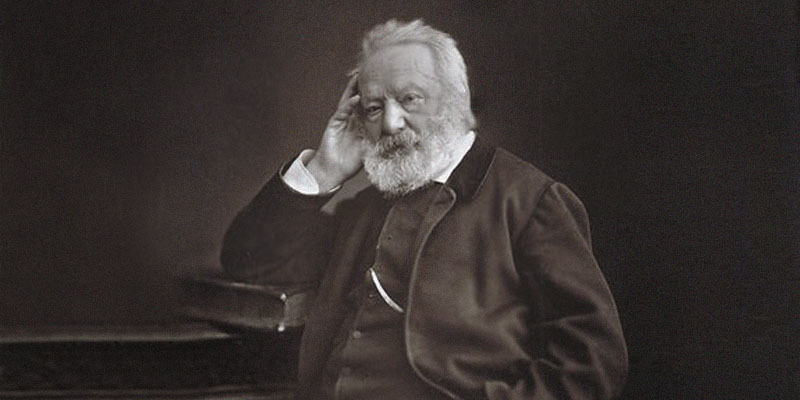
Who was Victor Hugo?
Victor Hugo was a French novelist, poet and playwright, considered one of the greatest exponents of French literature and one of the most renowned intellectuals of the 19th century. His novels Les Misérables and The Hunchback of Notre-Dame are among the most celebrated and best-known works in European literature.
Brother of writers Eugène and Abel Hugo, Victor was also a political figure deeply committed to France and its history , and a fervent opponent of Napoleon III and the Second French Empire. For this reason, his work not only encompasses literary fiction, but political and moral speeches, as well as travel chronicles.
Victor Hugo was a central figure of European Romanticism . His work was acclaimed by writers, intellectuals, and the general French populace alike. Upon his death, the nation honored him with a state funeral, and he was buried in the Panthéon in Paris.
- See also: Homer
Birth and youth of Victor Hugo
Victor-Marie Hugo was born on February 26, 1802, in the town of Besançon, in Eastern France. He was the youngest of the three sons of General Joseph Léopold Sigisbert Hugo (1773-1828), battalion commander of the Dubois imperial regiment, and his wife Sophie Trebuchét (1772-1821). His two older brothers were Abel (1798-1855) and Eugène (1800-1837).
His early years were marked by frequent moves due to his father’s position in the Napoleonic army: Paris, Elba, Naples, and Madrid were among some of the places young Victor got acquainted with during his childhood. His mother, however, always stayed in Paris, as the couple did not have a very stable relationship.
In 1813, the couple finally separated as a result of a love affair between his mother and General Victor Lahorie, Victor Hugo's godfather, to whom he owed his name.
These were unstable times for the Hugo brothers, who alternated between their father and mother’s homes, until Napoleon's defeat in 1815, which gave them greater stability. That year, Victor and his brother Eugène entered the Pension Cordier and then the Lycée Louis-le-Grand , where they studied until 1818. Victor then continued his studies at the University of Paris, in the field of law .
During those youthful years, Victor discovered his literary vocation in a self-taught way : he filled entire notebooks with verses and kept personal diaries in which, at just fourteen, he wrote: "I shall be Chateaubriand or nothing". His ambitions were exceptionally high, and his mother and his brother Eugène were his faithful readers.
Thus, in 1817, he participated in a poetry contest sponsored by the French Academy , receiving an honorable mention for his poem Trois lustres à peine . In 1819, he won his first poetry prizes awarded by the Floral Games of the Academy of Toulouse, and another in 1820 for his poem Moïse sur le Nil .
In 1819, encouraged by his mother and his recent successes, Victor founded the literary periodical Le Conservateur littéraire along with his brothers , which published the earliest essays of poets Alphonse de Lamartine and André de Chénier. The publication ceased to exist in 1821, the same year his mother died suddenly.
Marriage and early publications
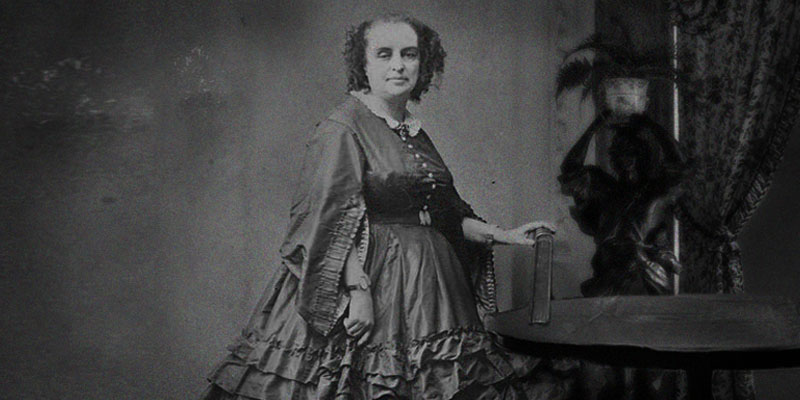
At the time of his mother's death, Victor Hugo was courting the young Adèle Foucher, daughter of friends of his parents’ and childhood friend of his. He wrote to her around 200 love letters even though his brother Eugène was also in love with her .
In 1822, the successful publication of Victor's first collection of poems, Odes et poésies diverses , earned him an annual pension of one thousand francs from King Louis XVIII. Counting on this income, Victor felt encouraged to ask Adèle in marriage. At the age of 20 and with 1,500 copies of his first book sold, Victor Hugo married the woman who would be his wife for forty-six years .
His brother Eugène plunged into a deep depression due to heartbreak. Later on, he manifested a mental illness that forced him to spend the rest of his days in an asylum, until his death in 1837.
Victor and Adèle shared a close bond, which brought five children into the world : Leopold, who died some weeks after his birth, Léopoldine (1824-1843), Charles (1825-1871), François-Victor (1828-1873), and Adèle (1830-1915). Following his marriage, Victor Hugo began to write his earliest fiction works.
I n 1823 he published his first novel, Han d'Islande (Han of Iceland ) , which was met with little enthusiasm. A positive review by author Charles Nodier (1780-1844), however, led to a friendship between the two writers, which opened for Victor Hugo the doors of the Bibliothèque de l'Arsenal , where the Cénacle literary group gathered, the cradle of French Romanticism.
Throughout 1824, he collaborated in the monthly publication La Muse Française (1823-1824) , the official dissemination channel of the Romantic literary movement, and published a new collection of verses: Nouvelles Odes (New Odes), dedicating some poems to his father. He also published Bug-Jargal , a novel on which he had begun working when he was just 16.
In 1827 his first play, Cromwell , came out, which broke with the classical dramatic tradition and consisted of 6,000 verses. Although the play was never performed in the theater, it was the content of its preface that caused a literary stir. This text is considered the foundation stone of French Romanticism.
The following year, his father died . Yet, the bereavement did not stop Victor Hugo's creative streak. That same year he published another collection of poems Odes et Ballades (Odes and Ballads), and the novel Le Dernier Jour d'un Condamné (The Last Day of a Condemned Man). The following year saw the release of Les Orientales , a collection of poems characterized by romantic exoticism. In 1830, the romantic drama Hernani was published, followed in 1831 by Marion de Lorme and Notre-Dame de Paris (The Hunchback of Notre-Dame), a novel that definitively catapulted Victor Hugo into fame.
Literary fame of Victor Hugo
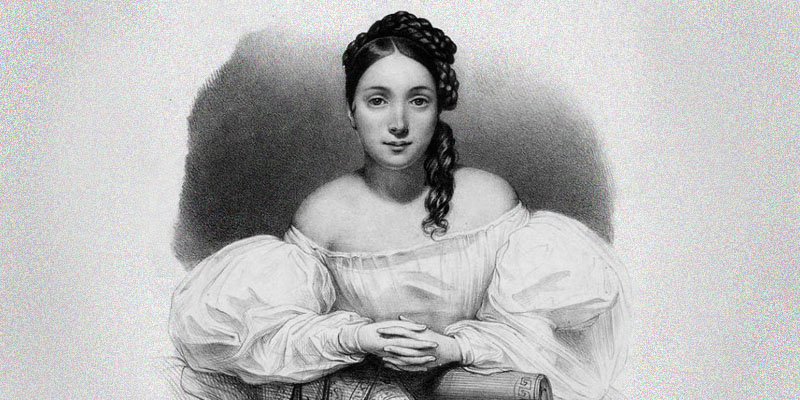
Literary acclaim brought the Hugos new friends , such as painter Eugène Delacroix (1798-1863), playwright Alfred de Musset (1810-1857), historian Prosper Mérimée (1803-1870), poet Alphonse de Lamartine (1790-1869), and literary critic Charles Augustin Sainte-Beuve (1804-1869), with whom Adèle had an affair in 1831.
Victor Hugo also frequented composers Hector Berlioz (1803-1869), Franz Liszt (1811-1886), and Giacomo Meyerbeer (1791-1864), as well as his childhood idol, French prose writer François-René de Chateaubriand (1768-1848). Around that time, he produced several collections of poems , including his famous Les Feuilles d’automne (Autumn Leaves).
However, his real successes during those years were in the theater . The 1830 debut of Hernani turned Victor Hugo into the icon of a movement seeking to renew theatrical forms, led by poet and playwright Théophile Gautier (1811-1872) and inspired by the changes brought about by the Revolution of 1830. These were politically turbulent times, which was reflected in the arts.
Some of Hugo's works were banned by the government , including Marion de Lorme in 1829 (though it premiered in 1832) and Le roi s'amuse (The King Amuses Himself), the following year. This only magnified Hugo's stature as a revolutionary playwright.
In 1833, he met actress Juliette Drouet, the most important of his many mistresses, who would become his secretary and traveling companion. From that date until her death in 1883, Juliette devoted her life to Victor Hugo . She gave up her acting career and lived practically secluded, only for the company of the French novelist.
During those years, Hugo did not cease to produce new stage plays. In 1841, his talent was recognized by the French Academy , where he was finally accepted after three failed attempts due to objections of the opponents of Romanticism.
However, his creative streak soon came to an end: in 1843 his newlywed daughter Leopoldine and her husband drowned in an accident . This family tragedy profoundly affected Victor Hugo, who, after writing a few more verses of Les Contemplations (The Contemplations), plunged into a literary silence which lasted nearly eight years.
The Revolution of 1830, also known as the July Revolution or the Three Glorious Days, was an uprising of the middle and working classes against the autocratic government of King Charles X of France. It took place in Paris, in July 1830, when the king dissolved the parliament following elections that were unfavorable to him. In his place, the so-called "citizen king", Louis-Philippe I of France, was elected, and France adopted a liberal Constitution.
Politics and exile
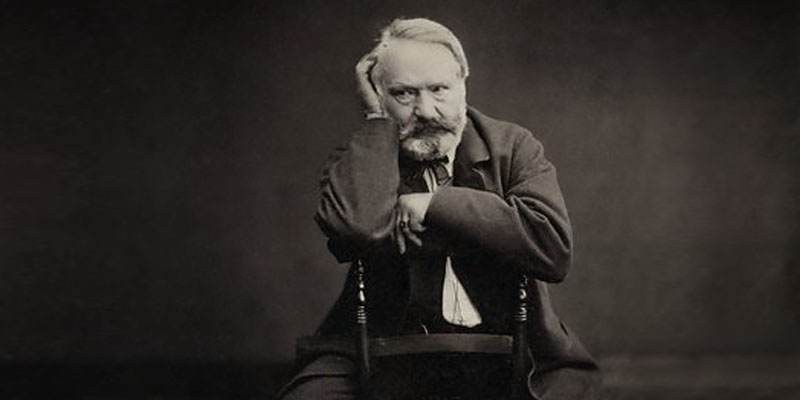
As the years went by, Victor Hugo began to distance himself from the royalist stance. Instead, he came closer to social sectors that fought for democracy and the establishment of the French Republic, eventually becoming a fervent supporter of republicanism .
This political transition began around 1844, when his literary stature allowed him to become a confidant of King Louis-Philippe I, which Victor Hugo saw as an opportunity to introduce changes to the system. In 1845, he was appointed a peer of France , a distinction reserved for relatives of the king and other distinguished personalities.
When a new revolution broke out in 1848, Victor Hugo was mayor of the eighth district of Paris and was involved in the repression of the workers' riots in June. Later, however, he openly criticized the massacre of the protesters. That same year, he founded the newspaper L'Événement , and was elected deputy to the National Assembly of the Second Republic, on the conservative side.
The Revolution of 1848 was a popular uprising that took place in Paris in February of that year, which ended the monarchy of King Louis-Philippe I and established the Second Republic. The events were triggered by the government's prohibition of the freedom of assembly, an attempt to curb the proliferation of opposition meetings. This revolution sparked the so-called "Springtime of the Peoples", which involved similar revolts throughout Europe, and was a key event in modern Western history.
In 1849, following the dissolution of the National Assembly, Victor Hugo's political stance took a definitive turn . While serving as a deputy in the National Assembly, he delivered his famous speech on misery and poverty ( Détruire la misère , "End the misery"), and broke with his former political allies, criticizing their reactionary stances, and severing ties with the then president Charles-Louis Napoléon Bonaparte.
In 1851, the republican government staged a self-coup d'état, with President Bonaparte proclaiming himself Emperor of the French under the name Napoleon III. When persecution of the opposition began, Victor Hugo fled to Brussels, Belgium . There he criticized the coup and wrote several political works, such as Napoléon le Petit (Napoleon the Little) and Histoire d’un crime (History of a Crime). He also published a collection of satirical poems: Les Châtiments (The Punishments), in 1853.
His publications led to his expulsion from Belgium , prompting Hugo to relocate to the island of Jersey in the English Channel, in the company of Juliette. He devoted himself to writing and spiritualism, partly in the hope of contacting his deceased daughter. However, in 1855, he was once again expelled, this time for openly criticizing the visit of Queen Victoria of England to France.
Victor Hugo moved to the island of Guernsey , and immersed himself in literary creation. In 1856, his work Les Contemplations (The Contemplations) came out, regarded as his magnum opus and a faithful reflection of the existential torments that afflicted him at the time.
He wrote two epic poems of a metaphysical nature : La Fin de Satan (The End of Satan) and Dieu (God), both about the confrontations between good and evil. Neither was published until after his death. He also completed the first volume of his monumental epic-historical poem La Légende des siècles (The Legend of the Ages), with the second and third volumes coming out years later, in 1877 and 1883, respectively.
In 1859, the French government proclaimed an amnesty and a return to France for political prisoners and exile s, albeit under the same system of government. Nevertheless, Hugo and other French expatriates rejected the proposal.
Les Misérables
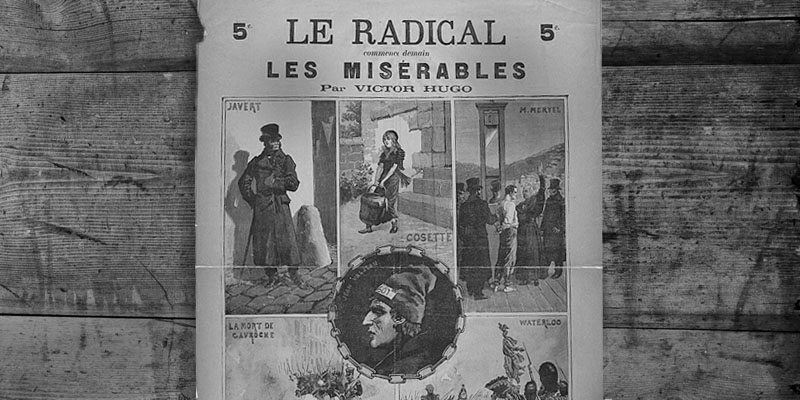
Shortly after, Victor Hugo returned to fiction. He took up an abandoned novel Les Misérables, published in 1862 , which was to become his most famous work. The novel was an immediate success in France and was quickly translated into other languages, earning him immense international fame.
Regarded as one of the greatest novels of 19th-century European literature , Les Misérables tells a story of love-hate and resentment towards society, embodied in its protagonist, Jean Valjean, sentenced to five years in prison for stealing bread to feed his family.
This work constitutes a study of the society of the time, touching upon poverty, conservatism, and classism . It also provides an account of the Parisian uprising of 1832 and the funeral of Jean Maximilien Lamarque (1770-1832), a renowned French revolutionary military figure. As such, it can be seen as a novel that is simultaneously epic, realistic, and romantic.
Les Misérables benefitted from both a massive advertising campaign and the fame that Hugo had already attained , especially following the success of Notre-Dame de Paris (The Hunchback of Notre-Dame). However, the novel met with mixed reviews, particularly from the most conservative sectors, who frowned upon the sympathetic portrayal of the revolutionaries in the text.
Some criticized the novel's excessive sentimentality, and writer Gustave Flaubert (1821-1880) lamented that the characters "all speak very well, but all in the same way" . On the other hand, authors like Charles Baudelaire (1821-1867) praised Hugo's success. The Catholic Church, in turn, banned the book, including it in its Index Librorum Prohibitorum .
Les Misérables was followed by another novel, a tribute to the people of Guernsey, entitled Les Travailleurs de la Mer (Toilers of the Sea), in 1866, and L'Homme Qui Rit (The Man Who Laughs), in 1869. However, those years were overshadowed by the news of the death of his wife, Adèle, on August 27, 1868.
In 1863, Adèle Hugo published a biography of her husband, entitled Victor Hugo raconté par un témoin de sa vie . This biography offers readers insights into Victor Hugo's thought and literary talent.
The complicated return to France
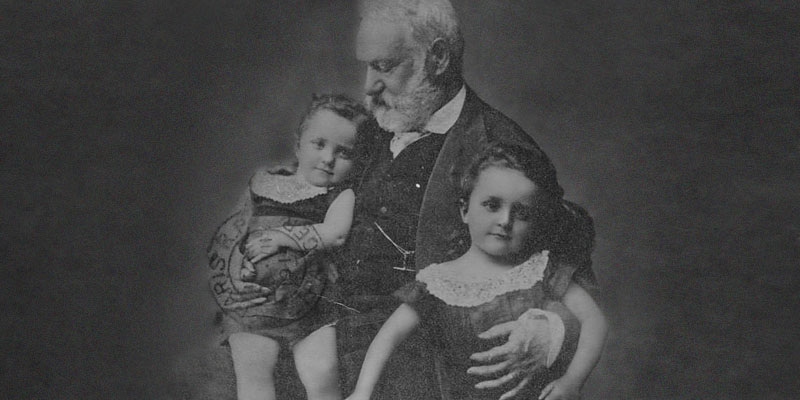
In 1870, the Franco-Prussian War broke out, resulting in the fall of the French Empire and the establishment of the Third French Republic. Victor Hugo could at last return to his homeland . In 1870, he participated in the defense of Paris, now under the republican government, and in 1871 he was elected deputy to the National Assembly, a position to which he resigned shortly after. That year, his son Charles died unexpectedly, and he had to travel to Belgium to arrange inheritance matters.
While in Brussels, the Paris Commune uprising broke out. Victor Hugo strongly criticized the subsequent brutal repression, leading to his expulsion from Paris . He sought refuge in Luxembourg, Vianden, Diekirch, and Mondorf-les-Bains, successively, for several months, during which time, he finished his poetry collection L'Année terrible .
Towards the end of 1871, he returned to Paris , where he accepted to run in the 1872 election for the Republicans. However, he was viewed as a "radical", and his proposal to pardon the communards was poorly received. That same year he returned to Guernsey, where he wrote his last novel, Quatre-vingt-treize (Ninety-three), set during the French revolutionary Reign of Terror, and published in 1874.
In 1873, he settled again in France, this time devoting himself to the upbringing of his grandchildren Georges and Jeanne. The experience was so gratifying that he wrote L'Art d'être grand-père (The Art of Being a Grandfather), a collection of lyrical poetry on childhood. Three years later, he was elected senator of the Republic, actively opposing President Patrice de Mac Mahon when he dissolved the lower house of parliament.
His health began to deteriorate. In 1878, after delivering the opening speech at the International Literary Congress, he retired to Guernsey for four months to rest. His ailments prevented any further literary production, but various poetry anthologies continued to be published during those years.
Death and legacy of Victor Hugo
In 1883, his beloved Juliette died, aged 77. Victor Hugo was over 80 years old himself. Two years later, on May 22, 1885, he died in the French capital , where he was given a state funeral.
His remains were mourned under the Arc de Triomphe, in an unprecedented funeral attended by a massive crowd of intellectuals, politicians, and ordinary people. Nearly two million people accompanied his coffin in the funeral procession to the Panthéon , his final resting place.
Victor Hugo’s literary legacy was enormous, spanning the genres of poetry, narrative, drama, political oratory, and travel chronicles . During his exile in Guernsey he also cultivated drawing and photography, leaving behind a photographic archive of almost 350 works. His towering literary stature is celebrated throughout the world, and in France he is revered as one of the major national poets.
As for his political views, Hugo was a fervent defender of the republican system , and in his speeches he strongly advocated for the fight against social segregation and inequality. He was one of the few men of his time to raise his voice for women's rights, and promoted the idea of a United States of Europe as a solution to the constant conflicts between the powers in the continent.
Over time, Victor Hugo's image became a symbol of the French republic and a national artistic icon, which inspired the French resistance during World War II . His works have been extensively translated and adapted into film, opera, animation, and television.
Major works of Victor Hugo
Victor Hugo's body of work was exceptionally extensive and varied. Among his most renowned works are:
Prose fiction
- Les Misérables (1862)
- L'Homme qui rit (The Man Who Laughs - 1869)
- Quatre-vingt-treize (Ninety-three - 1874)
- Les Feuilles d’automne (Autumn Leaves - 1832)
- La Légende des siècles (The Legend of the Ages - 1859)
- L'Année terrible (1872)
- Cromwell (1827)
- Hernani (1830)
- Napoléon le Petit (Napoleon the Little - 1852)
- Histoire d’un crime (History of a Crime - 1877)
- Barrère, J. B. (2023). Victor Hugo (French writer). The Encyclopaedia Britannica. https://www.britannica.com/
- Hugo, A. (1863). Memorias de Víctor Hugo . Trad. Nemesio Fernández Cuesta. Imprenta Las Novedades.
- Ministerio de Cultura de Argentina. (2022). Víctor Hugo, el último gigante. https://www.argentina.gob.ar/
- Telesur. (2023). Conozca la vida del escritor francés Víctor Hugo. https://www.telesurtv.net/
Explote next:
- Frida Kahlo
- Edgar Allan Poe
- Jean Monnet (1888-1979)
Was this information useful to you?
Updates? Omissions? Article suggestions? Send us your comments and suggestions
Thank you for visiting us :)

IMAGES
COMMENTS
Victor Hugo, poet, novelist, and dramatist who was the most important of the French Romantic writers. Though regarded in France as one of that country’s greatest poets, he is better known abroad for such novels as Notre-Dame de Paris (1831) and Les Miserables (1862).
Victor-Marie Hugo, vicomte Hugo [1] (French pronunciation: [viktɔʁ maʁi yɡo] ⓘ; 26 February 1802 – 22 May 1885), sometimes nicknamed the Ocean Man, was a French Romantic writer and politician. During a literary career that spanned more than sixty years, he wrote in a variety of genres and forms.
Victor Hugo is a celebrated French Romantic author best known for his poetry and his novels, including 'The Hunchback of Notre Dame' and 'Les Misérables.'
Learn about the life and works of Victor Hugo, a leading figure of the Romantic Movement in France. Explore his early poetry, his epic novels, his political exile, and his legacy.
Victor Marie Hugo (26 February 1802 – 22 May 1885) was a French poet, playwright, novelist, statesman and human rights activist. He played an important part in the Romantic movement in France. Hugo first became famous in France because of his poetry, as well as his novels and his plays.
Learn about the life and works of Victor Hugo, one of the great French Romantic poets and novelists. Find his poems, texts, and texts about him on this web page.
Victor Hugo, (born Feb. 26, 1802, Besançon, France—died May 22, 1885, Paris), French poet, dramatist, and novelist. The son of a general, he was an accomplished poet before age 20. With his verse drama Cromwell (1827), he emerged as an important figure in Romanticism.
Victor Hugo Biography. Victor Hugo learned an important lesson—don't criticize Napoleon!—when the writer declared Napoleon III a traitor of France. Hugo was exiled in 1851 and granted...
Victor Hugo was a French novelist, poet and playwright, considered one of the greatest exponents of French literature and one of the most renowned intellectuals of the 19th century. His novels Les Misérables and The Hunchback of Notre-Dame are among the most celebrated and best-known works in European literature.
Novelist, poet, and dramatist, Victor Marie Hugo was the preeminent French man of letters of the 19th century, and the leading champion of romanticism. Notre-Dame de Paris, Les Miserables...